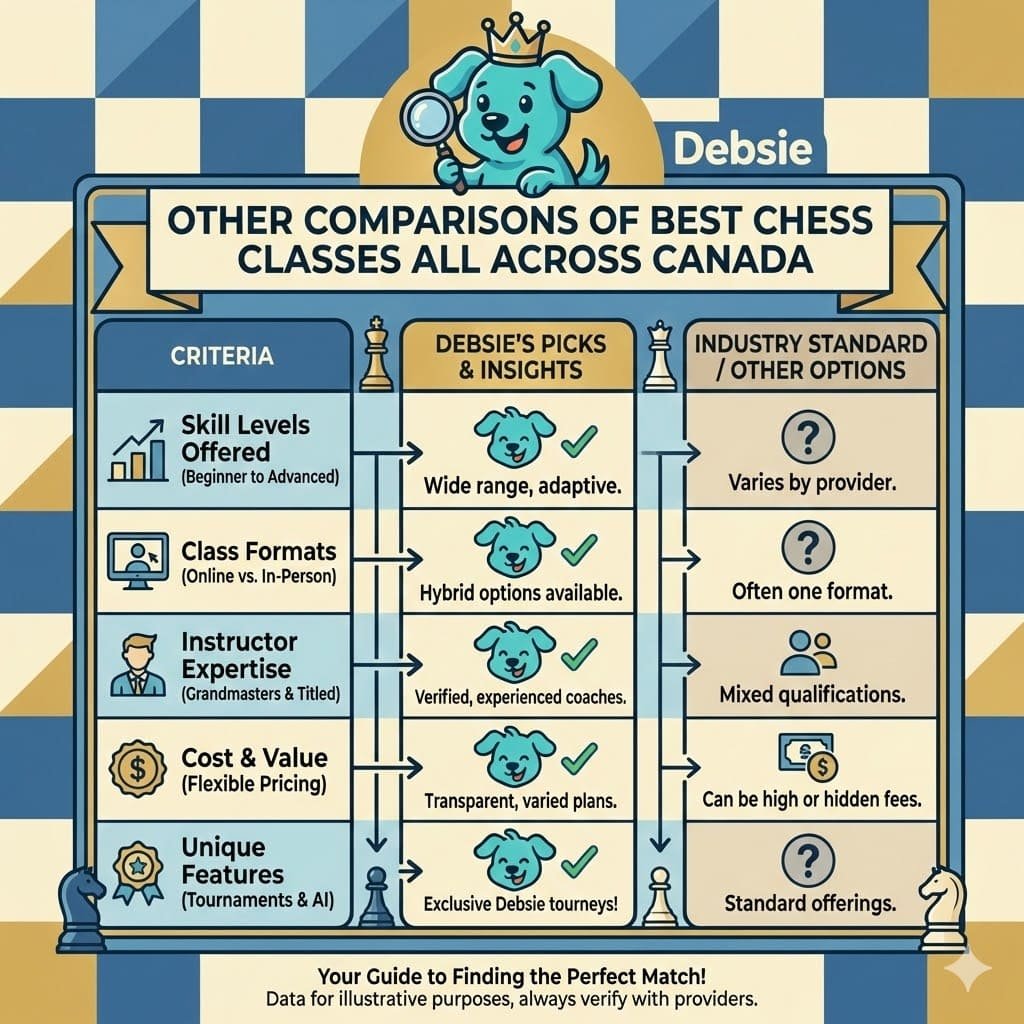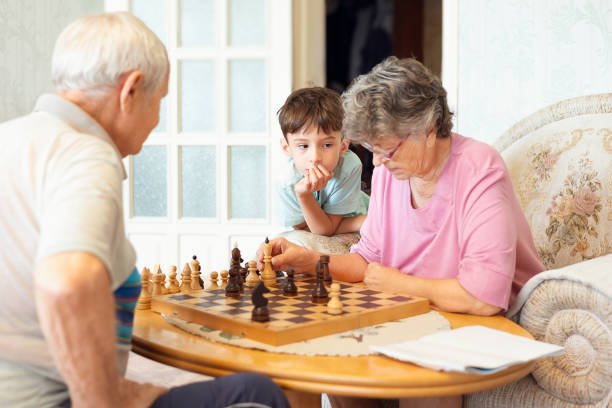If you live in Kingston, Canada, and you’re looking for the best place to learn chess, you’re already doing something smart. Chess is more than a game. It’s a skill that teaches kids and adults how to think clearly, stay focused, and make smart choices.
But here’s the thing—where you learn chess matters a lot.
Some classes are fun but slow. Some are fast but confusing. Some don’t really teach at all—they just let you play games. And in a small city like Kingston, it can be even harder to find something that’s just right.
In this article, you’ll learn about the top chess tutors and classes in Kingston. I’ll show you what’s available, what to expect, and what to avoid. More importantly, I’ll show you why online chess training is the smartest choice today, and how Debsie is the best in the game—not just in Kingston, but worldwide.
Online Chess Training
Let’s talk about how chess has changed. Not the rules of the game, but how it’s taught.
In the past, if you wanted to learn chess, you had to meet someone in person. Maybe at a chess club or someone’s home. But now, you can learn from a world-class coach without leaving your house. That’s what online chess training gives you. And honestly, it’s better in more ways than people think.
Online chess isn’t just about watching videos. It’s live. It’s real-time. You can ask questions. You can get answers. You can play, learn, fix mistakes, and improve—all while sitting at home in Kingston.
The coach sees your board, your thinking, your timing. And because everything is digital, your learning is tracked. No lost notes. No forgotten lessons. Everything is saved.
It’s also flexible. You don’t have to skip class if it’s snowing, or if there’s no ride, or if the family schedule changes. You just open your laptop, log in, and the lesson begins. This makes learning chess more regular. And regular learning leads to real growth.
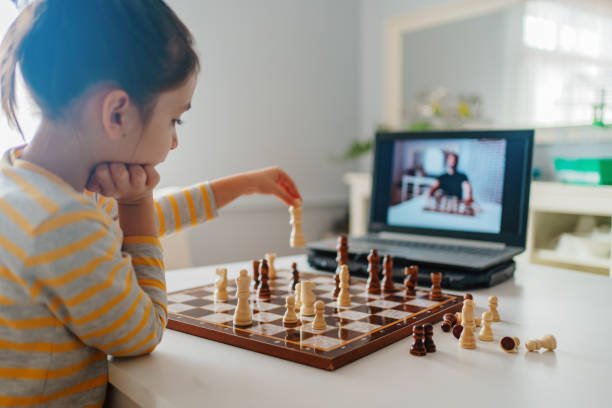
Another reason why online chess is so powerful: the quality of coaches. You’re no longer stuck with whoever lives nearby. You can learn from someone who’s trained hundreds of students, has international ratings, and knows how to teach—not just how to play. That’s huge. In chess, having the right coach makes all the difference.
Landscape of Chess Training in Kingston and Why Online Chess Training is the Right Choice
Kingston is a lovely city. It’s known for its schools, its waterfront, and its calm pace. But when it comes to chess education, the options are small. You might find a local club, maybe a school group, or a coach who teaches a few kids on weekends. These are good starting points, but they often don’t go very far.
The local chess scene in Kingston isn’t huge. There are not many coaches with international certifications. Not many structured classes. And very few tournaments. That means if your child loves chess and wants to grow fast, the local options might not be enough.
Even if you find a local chess class, it may not run all year. It may stop in the summer. Or get canceled during holidays. Or not match your schedule. This is where online training wins again. It works when you want, where you want, and continues as long as you want.
Online chess training brings the world to Kingston. You can now get the same quality of teaching that kids in New York or London or Toronto get—without leaving home. That’s powerful.
And with the right platform, like Debsie, you’re not just getting random lessons. You’re getting a full path—from beginner to tournament-ready. That kind of support is hard to find in a small city.
So if you’re in Kingston and want something better than basic chess, something with structure, care, and results, online training is the better road. And it’s wide open.
How Debsie is The Best Choice When It Comes to Chess Training in Kingston
Debsie isn’t just another chess website. It’s a full online academy. It’s a place where chess is taught with love, with logic, and with a real plan. It’s built for families who want their kids to learn—not just play.
When a student joins Debsie, they don’t get dropped into a random class. First, they get a free trial session. During that session, a certified coach checks how the student thinks, plays, and learns. This is not a test. It’s a kind, gentle way to see where to begin. From there, a custom learning plan is made.
That plan includes live classes, homework, puzzles, feedback, and goals. The student learns step-by-step, with everything connected. Openings, tactics, strategy, endgames—it’s all part of the journey.
Classes are small and interactive. Students don’t sit quietly. They talk. They ask. They solve. They play. And they get help when they need it. The coach explains slowly. And clearly. And with care.
Debsie also runs tournaments every two weeks. These aren’t just for fun. They’re part of the learning. Students get to test what they’ve learned. They get used to pressure. They learn to think fast and smart. And they grow.
The coaches at Debsie are not just top players. They are FIDE-certified, meaning they’ve trained, passed exams, and proven that they know how to teach. And they love working with kids.
Parents get full updates. They can watch recordings of the class. They can talk to the coach. They see the progress—not just in chess skills, but in how their child focuses, thinks, and makes choices.
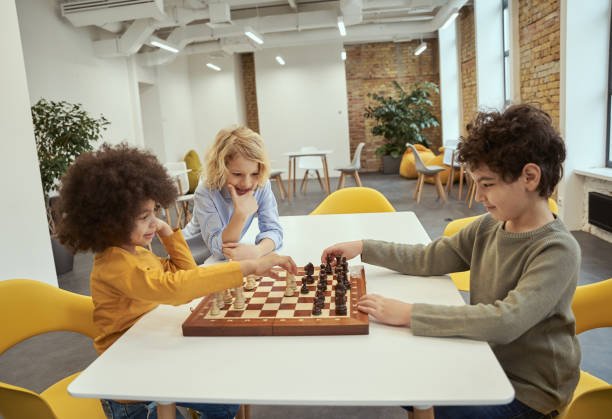
Offline Chess Training
For a long time, chess was only taught in person. Coaches would meet with students face-to-face, at home, in a school, or at a chess club. This way of learning has a special charm to it. The feel of the board, the click of the pieces, the human connection—it’s classic.
In Kingston, there are still a few offline options for chess. You might find chess meetups at the public library, casual games at Queen’s University, or clubs that gather weekly. Some coaches also offer private lessons in their homes or at rented classrooms.
These sessions can be nice, especially for younger kids who enjoy moving real pieces or students who learn better when someone is sitting right next to them. It can also feel more social, with students playing across the board and making friends in real life.
But even with all that, offline training in a city like Kingston comes with big limits.
For one, it’s hard to find many strong, certified coaches. And even if you find one, their schedule might not match yours. Their class might already be full. Or they might live far away from your part of town.
Another issue is consistency. Many offline programs only run during school terms. They may pause during holidays or shut down in winter. Others may be cancelled at the last minute if the coach is sick or the space isn’t available.
And most of all—offline training usually doesn’t follow a fixed path. You might have fun. You might learn some new moves. But there’s no guarantee of real progress. No homework. No tournaments. No long-term plan.
That’s why, even though offline chess can feel friendly, it often falls short when it comes to building real, deep skills.
Drawbacks of Offline Chess Training
Now let’s go a bit deeper into the problems with offline chess training—especially in a place like Kingston.
First, there’s the issue of structure. Offline classes often don’t follow a solid curriculum. The coach might decide what to teach based on the mood of the day or just go along with what the students seem to like.
This means learning is slow and scattered. Important ideas might never get covered. Some kids get bored. Others get confused.
Then there’s the issue of coaching quality. Many local coaches are passionate players, but they’re not trained teachers. They might rush. They might skip steps.
They might teach in a way that works for adults but not for kids. And because offline classes are often larger, your child may not get the attention they need.
Another challenge is scheduling. With offline classes, everything depends on time and place. If the coach gets sick, class is cancelled. If the weather is bad, you miss the session. If your child is away for a weekend, there’s no way to catch up. There are no recordings. No backups.
And travel is always a factor. Getting to class takes time. Finding parking. Rushing after school. In winter, it can be especially hard for families in Kingston. Roads are icy, daylight is short, and it’s just not fun to be out.
There’s also very little feedback for parents. In many offline programs, you drop your child off and hope for the best. You don’t really know what they learned. You don’t get to see how they’re doing. You don’t know if they’re improving.
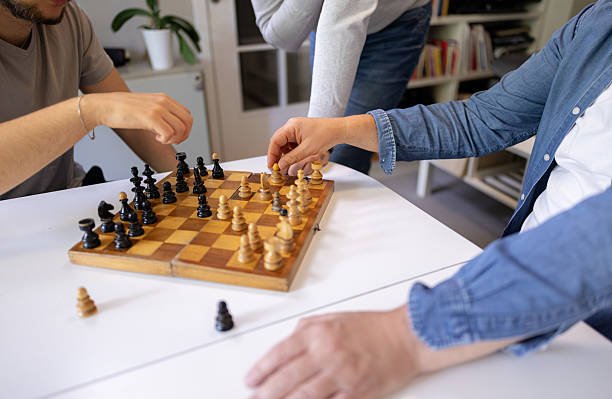
Compare that to online chess programs—especially a structured one like Debsie—and it’s easy to see the difference. With Debsie, every class is tracked. Every lesson fits into a plan. Every student gets personal help. And parents are kept fully in the loop.
Best Chess Academies in Kingston, Canada
Here I describe some of the good chess options in Kingston. For each, I mention what they offer and how Debsie still stays a stronger or more complete option.
1. Debsie
Debsie remains the top chess academy for students in Kingston who really want steady growth, real progress, and life lessons along with chess.
A student gets a free trial class. In that class, a coach (FIDE‑certified) spends time to see how the student thinks, what strengths and weaknesses they have, how fast they learn. Then a custom plan is built. This plan is not “one‑size‑fits‑all.” It adapts.
Lessons are live, interactive. You don’t just watch videos. You ask, you make mistakes, you learn from them. Coaches give feedback immediately. They assign puzzles and games, and check how you’re improving. Parents can see the class recordings, reports. Everything is transparent and tailored.
At Debsie, there are bi‑weekly tournaments. That means every two weeks, students have a chance to play under competitive conditions. That gives them experience handling pressure, learning from real games, not just practice. It helps build courage, decision‑making, resilience.
Debsie also emphasizes not just chess moves, but how chess builds the mind: how you plan ahead, how you stay calm when something goes wrong, how to think logically, how to be patient. These skills help in school, in life, not just on the chessboard.
Because everything is online, it is flexible. You don’t need to drive across town, deal with weather, find parking. Lessons happen from home. If you miss one, there are makeups or recordings. You can schedule what works for your family.
2. Kingston Chess Club
Kingston Chess Club is a strong local option. They meet in a real place (Café Church, 333 Princess Street, Suite 200). They have weekly meetings, with separate times for juniors and seniorJuniors meet around 6:00‑7:15, seniors later in the evening.
They offer junior coaching and practice, and host tournaments. The club’s mission is to help players of all levels improve, give them chances to play, meet others, and learn.
What they don’t do so much: high‑frequency personalized coaching or structured online curriculum. Because of the schedule, students may have only once or twice a week, may need to travel, may miss classes if they can’t attend. There is less flexibility. Also, while they teach and support, the depth of feedback, the tracking of progress, recording of lessons etc tend to be more limited than what Debsie offers.
3. Queen’s Chess Club
Queen’s University has a Chess Club. It is open to students, and also invites public members sometimes. They run regular meetups, casual play, puzzles, discussions. They also host tournaments and coaching sessions occasionally.
This is great for students who enjoy club culture, want to meet peers, want casual or mid‑level competition, want to learn in social settings. But it may not always have strong one‑on‑one lessons, customized plans for younger beginners, or the frequency of classes that some dedicated learners need.
Also, schedules are linked to university calendars which may mean breaks, less consistency over summer or holidays.
4. Chess Institute of Canada (CIC)
Chess Institute of Canada runs both online and in‑person programs across Canada. Their offerings include beginner, intermediate, advanced classes. They also provide extracurricular school clubs, in‑class programs, tournaments.
For students in Kingston, CIC can be a good choice especially if you want a more formal, recognized institution. But what you may find is that the local in‑person offering is limited; many students will have to take online portions anyway. Also, because of geographic distance, travel time, schedule conflicts, and perhaps higher cost for in‑person, many families end up using their online programs.
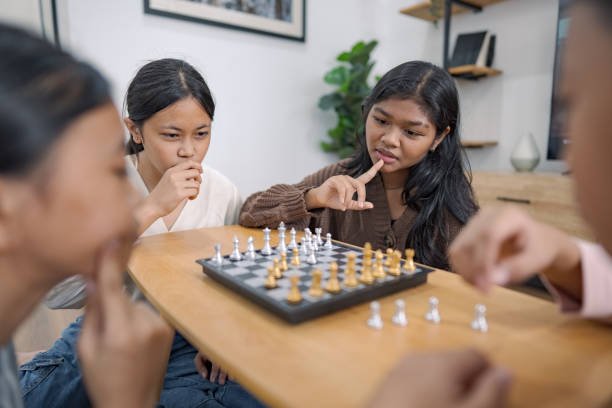
5. “Play Like Royalty” / The King’s Gambit Chess Lessons & FIDE Instructor
I found an offering called “Play Like Royalty! Learn the Game of Kings from FIDE Trainer” advertised in Kingston. It is led by a FIDE‑certified instructor (“Joy”) with many years of experience. This program promises personalized lessons that match your style and strengths, uses modern tools and software, and has good credentials.
This is one of the stronger third options in Kingston. If you want individual attention and are willing to pay more, this could be a good fit. You might get deep insights, strong coach feedback, and serious strategy work.
Why Online Chess Training is The Future
The way we learn is changing. It’s not about where you sit—it’s about how well you learn. And chess is the perfect example of this shift.
Online chess training gives students more than just a board and a coach. It gives them freedom. They learn at home. They learn on their schedule. They don’t miss class because of a snowstorm or a ride that didn’t show up. It’s easier. It’s smoother. And that means they learn more often—and improve faster.
But it’s not just about ease. Online chess brings better tools. The board is interactive. The coach can highlight ideas, show games, explain with arrows, switch views—all live. Students can replay the lesson later. They can pause, rewind, and study again. That’s powerful.
Online platforms can also track progress. They show where a student is doing well, and where they need help. They adjust homework and puzzles to match the student’s level. This kind of custom learning is hard to do offline.
Online also opens up the world. You’re not stuck with just one or two coaches nearby. You can learn from the best. You can join tournaments with kids from other countries. You can meet players who think differently. This kind of exposure builds strong, smart, confident players.
And let’s be honest: life is busy. School, homework, dinner, other activities. Driving across Kingston after a long day is tough. Online chess training fits into your life instead of forcing you to rearrange everything.
It’s no surprise that more families are choosing online learning. It’s not the future—it’s already here. And in chess, it works better than ever.
How Debsie Leads the Online Chess Training Landscape
Debsie doesn’t just teach chess. It changes the way kids think.
Every part of the Debsie program is made with care. It starts with a real conversation. A coach talks to your child, watches how they play, listens to how they explain. This helps the coach understand how your child thinks—not just what they know.
From there, a step-by-step learning path is made. It covers openings, tactics, checkmates, strategy, and everything in between. But more than that, it teaches patience, planning, focus, and calmness under pressure.
Classes are live and personal. Coaches are certified, trained, and kind. Students get to ask questions, solve puzzles, learn from others, and play. Every class builds on the one before it. There’s no guessing. No wasted time.
Tournaments happen every two weeks. These are safe, fun, and full of learning. They’re not just about winning—they’re about growing. Students get to test their skills, learn from their mistakes, and feel proud of how far they’ve come.

Parents love Debsie too. You get updates, recordings, and clear progress reports. You’re always part of the journey.
Debsie is trusted in over nine countries. It’s helped kids from different backgrounds, different skill levels, and different dreams. Some just want to think better. Some want to win tournaments. Debsie helps them all.
👉 Take a free trial class here
Conclusion
Chess is more than a game. It’s a tool for thinking. A quiet coach that helps kids plan ahead, stay calm, and make smart choices.
If you’re in Kingston, you have a few good places to start. But if you want real progress—steady, exciting, and supported—Debsie is the best path.
Debsie brings expert coaching, a smart plan, live feedback, and constant encouragement. All online. All from home. All made for real growth.
Comparisons With Other Chess Schools:
Other Comparisons of Best Chess Classes All Across Canada:
